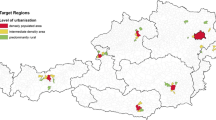Abstract
A traveler’s willingness to pay for travel time savings depends on his/her socio-economic characteristics, travel purpose, and situational factors such as time pressure under which the travel is undertaken. Earlier literature on value of time (VOT) analysis focused mostly on the first two factors but did not examine the last factor thoroughly. However, in the real world we expect that (at least in most cases) a worker would be willing to pay more during the before-work period than during the after-work period since most of the workers should reach their respective work places by a certain time while the after-work schedule in general should be more relaxed. The additional time pressure during the before-work period makes time more valuable, thus increasing VOT. In some cases, where a worker with a flexible schedule has a high-priority post-work activity with a fixed schedule (for example, tickets to a concert) the situation can be reversed. The current study aims to capture such impacts of daily activity patterns on a person’s VOT using a comprehensive trip segmentation framework that is comprised of several integrated mode and trip departure time-of-day choice models. Each of these integrated models was estimated using both Revealed Preference and Stated Preference data from a large-scale GPS-assisted Household Travel Survey undertaken in Jerusalem, Israel. The results not only confirm the long-held hypothesis about variation of VOT by socio-economic factors and trip purpose but also shed light on the variation of VOT with daily travel patterns. To our knowledge, this is the first attempt to develop a rigorous modeling framework for capturing variation of VOT as a function of the individual daily activity pattern. An additional feature of the proposed approach is that it was practically implemented within the framework of an applied activity-based model.






Similar content being viewed by others
Notes
DA free, DA toll, SR2 driver free, SR2 driver toll, SR3 + drive, SR3 + driver toll, SR2 passenger free, SR2 passenger toll, SR3 + passenger free, SR3 + passenger toll, walk, bike, bus-walk, bus-PNR, bus-KNR, express bus, BRT-walk, BRT-PNR, BRT-KNR, LRT-walk, LRT-PNR, LRT-KNR, taxi, school bus.
Non-mandatory travel patterns correspond to people who do not undertake any type of mandatory activities during the day.
References
Bhat, C.R., Sardesai, R.: The impact of stop-making and travel time reliability on commute mode choice. Transp. Res. B 40(9), 709–730 (2006)
Cirillo, C., Axhausen, K.W.: Evidence on the distribution of values of travel time savings from a six-week diary. Transp. Res. A 40(5), 444–457 (2006)
Jain, J., Lyons, G.: The gift of travel time. J. Transp. Geogr. 16(2), 81–89 (2008)
Koppelman, F.: Improving our understanding of how highway congestion and price affect travel demand (2013)
Lyons, G., Urry, J.: Travel time use in the information age. Transp. Res. A 39(2), 257–276 (2005)
Mokhtarian, P.L., Chen, C.: TTB or not TTB, that is the question: a review and analysis of the empirical literature on travel time (and money) budgets. Transp Res A 38(9), 643–675 (2004)
Paleti, R., Vovsha, P.S., Givon, D., Birotker, Y.: Joint modeling of trip mode and departure time choices using revealed and stated preference data. Transp. Res. Rec 2429(1), 67–78 (2014)
Small, K.A.: Valuation of travel time. Econ. Transp. 1(1), 2–14 (2012)
Tseng, Y.-Y., Verhoef, E.T.: Value of time by time of day: a stated-preference study. Transp. Res. B 42(7), 607–618 (2008)
Vovsha, P., Bradley, M.: Hybrid discrete choice departure-time and duration model for scheduling travel tours. Transp. Res. Rec 1894(1), 46–56 (2004)
Author information
Authors and Affiliations
Corresponding author
Rights and permissions
About this article
Cite this article
Paleti, R., Vovsha, P., Givon, D. et al. Impact of individual daily travel pattern on value of time. Transportation 42, 1003–1017 (2015). https://doi.org/10.1007/s11116-015-9654-6
Published:
Issue Date:
DOI: https://doi.org/10.1007/s11116-015-9654-6




